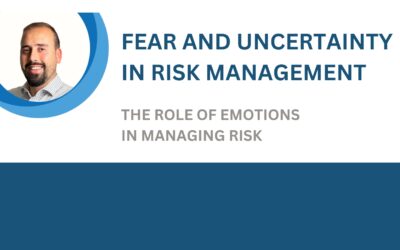And why they aren’t just being difficult
Everyone has had or seen a project flying along smoothly only for operations to come in and block the project from going live at the last second. The delay kills critical project momentum. Contractors already want to move on to the next project and getting them to hang around or come back is expensive. Project managers feel blindsided since operations have been involved throughout the project, so they assumed that there weren’t going to be any problems.
Operations aren’t being difficult on purpose, bringing new water treatment equipment online is risky. We have an unproven system connecting directly to our customers. Getting it wrong could be catastrophic. Operations know the stakes and have no issue delaying a project to protect the process and buy time to do it properly.
The default reaction from a frustrated project manager is to push operations like they would a contractor, this doesn’t end well with operations only getting more defensive and uncooperative. The standoff is worsened by the bad blood that usually exists between project and operations teams.
We end up here because projects are fundamentally proactive in nature while operations are reactive. Project teams are expecting operations to have planned ahead for their project when, in reality, the understaffed operations team are too busy juggling multiple projects and fighting endless fires on their sites to plan that far ahead.
To operations, the project is the source of the risk and has all the money and resources so the project team should be managing the risk. The problem is, only operations have the first-hand knowledge, tools, resources, authority and skills to actually manage the risks. The key to resolving this is getting operations to buy in and help without just handing them a big pile of work.
A commissioning engineer can help fill the gaps, but they usually can’t sign off on high-risk work without operations approval or input. High-risk work can paralyse operations teams if it isn’t presented carefully. Operations need to be confident that the works aren’t going to cause an issue otherwise they won’t be able to give the go ahead. The project team has to communicate their plan in such a way that operations feel that it poses minimal risk.
My favourite way of achieving this is with risk assessments.
A series of risk assessments of the commissioning methodologies starting early in the project is perfect for overcoming the differences between operations and projects. A project manager can proactively book a risk assessment and all operations have to do is turn up. I have found operations will almost always take the opportunity to air their concerns because they genuinely care about protecting their plants.
The risk assessments allow the project team to extract all the potential issues, risks, requirements, and actions from operations that they need early without requiring significant extra work from operations. One of the most important outcomes for this process is timing. The project team can find out early if there is a limited time window available or a long lead-time for scheduling the works and can avoid running into an expensive last-minute delay.
The nature of risk assessments is that one usually isn’t enough for complex activities, especially when the details are still being worked out. During a risk assessment you will identify gaps in knowledge requiring investigation that have to be revisited, sometimes more than once.
Going through these risks assessments is an exploratory journey that the project, commissioning, and operations team go on together. When the operations team see the project team proactively listening to and addressing their concerns, they will gradually start to trust the projects team and buy in to the project. This means they will be more cooperative and forthcoming with their support.
During a risk assessment you write down all the risks that everyone can think of in an exhaustive and often boring manner. Writing down and methodically mitigating the risks alongside the operations team is an effective way of instilling the confidence required for getting the final go ahead to do the works.
I have found risk assessments to be an incredibly useful tool for bringing project and operations teams together and empowering decision-making. Please let me know any tools you have found useful in the comments below.
About the author: Benjamin Demmer-Knight is a Chemical Engineer with 10 years of experience in water treatment operations and engineering and is the managing director of Water Treatment Engineers NZ limited.





0 Comments